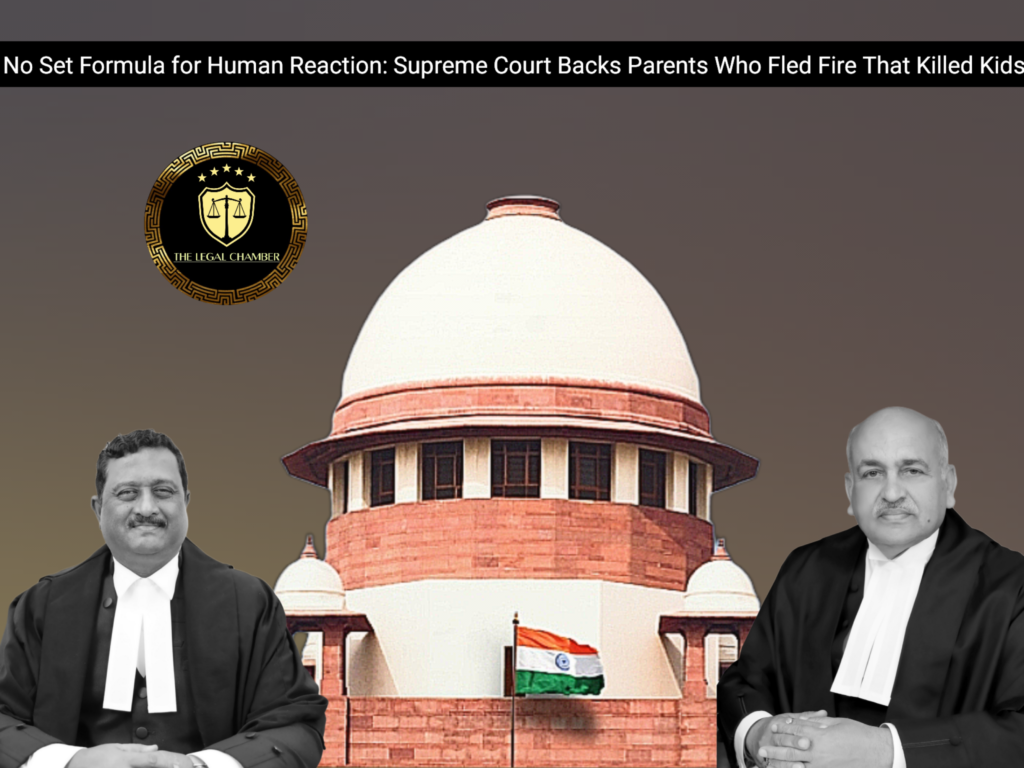
The Supreme Court ruled that the High Court erred in its appreciation of evidence, particularly witness testimony and circumstantial evidence. It upheld the trial court’s conviction, establishing that the prosecution successfully proved its case beyond a reasonable doubt and that witness conduct cannot be judged by a uniform standard of reaction.
Facts Of The Case:
The case stems from a tragic incident on the intervening night of April 1-2, 1992, in Khunti, where the informant, Santosh Kumar Singh, his wife, and their two infant daughters were asleep. The prosecution’s case was that accused persons Nilu Ganjhu and Md. Mahboob Ansari, motivated by a business rivalry with the informant over his bus agency operation, threatened him weeks prior. That night, an explosive substance was used, causing the informant’s thatched house to catch fire. The informant and his wife escaped with burn injuries but were unable to save their two young daughters, who perished in the blaze. Upon exiting, the informant claimed to have seen the accused individuals fleeing the scene under an electric light, identifying them clearly. Based on his fardbayan (statement), an FIR was registered under Sections 302 (murder), 307 (attempted murder), and 436 (mischief by fire) of the IPC. The Trial Court convicted the accused, but the High Court later acquitted them, citing discrepancies in the prosecution’s story, including the lack of bomb remnants and the improbability of the parents’ conduct. The State appealed this acquittal to the Supreme Court.
Procedural History:
The case originated with the conviction of the accused persons by the Learned Additional Judicial Commissioner, Khunti, in February 1994 for offences under Sections 302/34 and 436/34 of the IPC, sentencing them to life imprisonment. This conviction was challenged before the High Court of Jharkhand at Ranchi. In its order dated January 24, 2023, the High Court allowed the criminal appeals filed by the accused, thereby acquitting them and setting aside the trial court’s judgment. The High Court concluded that the prosecution had failed to prove the charges beyond a reasonable doubt, citing major infirmities and improbabilities in its case. Aggrieved by this order of acquittal, the State of Jharkhand filed Special Leave Petitions before the Supreme Court, which granted leave and heard the ensuing criminal appeals, culminating in the present judgment.
READ ALSO:Chain of Circumstances Broken: Supreme Court Frees Accused in Landmark Circumstantial Evidence Ruling
Court Observation:
In its judgment, the Supreme Court made several key observations. It held that the High Court committed a serious error by treating the case as based solely on circumstantial evidence, overlooking the direct ocular testimonies of eyewitnesses, including the injured informant and his wife, who consistently identified the accused fleeing under an electric light. The Court emphasized that the FIR need not be an encyclopedia and that the use of an “explosive substance,” even if not a sophisticated bomb, was sufficient to establish the prosecution’s case. Critically, it ruled that there is no set formula for human reaction in a traumatic event, rejecting the High Court’s adverse inference against the witnesses for fleeing without their children. The Court also found the defence of alibi for one accused to be conclusively proven by medical evidence, leading to his acquittal, while the evidence against the others was found to be credible and conclusive.
Final Decision & Judgement:
The Supreme Court allowed the State’s appeal in part. It dismissed the appeal against accused Dhanushdhari Ganjhu, upholding his acquittal as his alibi was conclusively proven. However, the Court allowed the appeal against Nilu Ganjhu and Mahboob Ansari, setting aside the High Court’s order of acquittal. Consequently, the trial court’s conviction and sentence against them under Sections 302/34 and 436/34 of the IPC was restored. The Court directed the two convicted accused to surrender before the trial court within two weeks.
Case Details:
Case Title: The State of Bihar Now Jharkhand Vs. Nilu Ganjhu @ Nilkant Ram Ganjhu & Anr. Citation: 2025 INSC 942. Criminal Appeal No.: Criminal Appeal No.(s) 3382 of 2025 Date of Judgement: August 6, 2025 Judges/Justice Name: Justice Prasanna B. Varale and Justice Pankaj Mithal
Download The Judgement Here